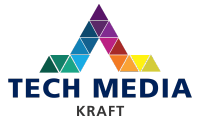The workplace is evolving rapidly, driven by the distinct values and expectations of Gen Z. This cohort, born between the late 1990s and early 2010s, is bringing a fresh perspective to professional environments, emphasizing mental well-being, equality, and a positive workplace culture.
Understanding and adapting to these changes is crucial for businesses aiming to thrive in the modern job market.
Key Trends Among Gen Z in the Workplace
One of the most prominent trends led by Gen Z is “Rage Applying.” This phenomenon occurs when employees, frustrated with their current job situations, apply to multiple positions simultaneously in search of better opportunities.
Another trend gaining traction is “Bare Minimum Monday,” where employees start their week with minimal stress and reduced workload to focus on mental health and avoid burnout. These trends indicate a significant shift towards prioritizing personal well-being and job satisfaction over traditional metrics of success.
Career Flexibility and Growth
Gen Z professionals are characterized by their desire for career growth and flexibility in work locations. According to Sourabh Agrawal, Senior Vice President at Lupin, young professionals frequently switch professions driven by the lure of new opportunities, the quest for personal development, and the pursuit of job satisfaction.
This behavior marks a departure from previous generations, who often valued job stability and long-term tenure more highly.
The Importance of Work-Life Balance
For Gen Z, achieving a balance between work and personal life is paramount. Recognition and a supportive work culture are critical factors for job satisfaction.
Eklavya Monga, a Business Analyst at EXL, underscores this by stating, “I dedicate myself fully during work hours but also prioritize a fulfilling life beyond work.” The lack of work-life balance often acts as a deal-breaker, making it essential for employers to create environments that support both professional dedication and personal fulfillment.
Job Market Dynamics
Recent statistics highlight significant trends among younger workers. A survey conducted in India between December 2023 and March 2024, involving 2,586 professionals, revealed that 34% of Gen Z workers intend to leave their current jobs, with 32% of millennials expressing similar intentions.
This data indicates a broader movement towards career mobility and the pursuit of job satisfaction, reflecting a shift in priorities among younger generations.
The Role of Workplace Culture
Jerry Jose, Digital Marketing Lead at ZS, emphasizes the critical role of workplace culture in job satisfaction. When exploring new opportunities, Jose looks for environments with well-defined roles and responsibilities, coupled with a positive and inclusive culture.
This preference reflects a broader trend where younger professionals seek workplaces that align with their values and offer a sense of community and belonging.
Evolving Expectations and Professional Development
According to Agrawal, the evolving expectations of Gen Z are a result of increased awareness, continuous skill development, and a focus on meaningful work. Unlike previous generations, Gen Z does not prioritize longevity or climbing the corporate ladder.
Instead, they value roles that offer purpose and opportunities for personal and professional growth. “Digitalisation has opened doors to the global marketplace, and job hopping is no longer viewed negatively but is an endorsed practice for personal growth and career progression,” adds Agrawal.
Adapting to Gen Z’s Needs
Employers aiming to attract and retain Gen Z talent need to adapt to these changing dynamics. Here are specific strategies to consider:
1# Embrace Flexibility
Offering remote work options and flexible schedules can attract Gen Z employees seeking a better work-life balance. Flexibility in working hours and locations helps accommodate their desire for personal time and productivity.
2# Promote Mental Health
Implementing policies and programs that support mental well-being is essential. This includes providing access to mental health resources, creating a stigma-free environment for discussing mental health issues and encouraging regular breaks and time off.
3# Foster Inclusive Cultures
Creating a supportive and inclusive workplace culture can enhance job satisfaction and loyalty. This involves promoting diversity, equity, and inclusion initiatives, ensuring all employees feel valued and respected, and fostering a sense of belonging.
4# Provide Growth Opportunities
Continuous learning and development opportunities can help retain Gen Z talent. Offering professional development programs, mentorship, and career advancement opportunities can keep employees engaged and motivated.
5# Recognize and Reward
Regular recognition and rewards can boost morale and engagement among young professionals. Acknowledging their contributions through various forms of recognition, such as bonuses, promotions, or public appreciation, can significantly enhance job satisfaction.
Key Takeaways for Employers
1# Embrace Flexibility
Offering remote work options and flexible schedules can attract Gen Z employees seeking work-life balance.
2# Promote Mental Health
Implementing policies and programs that support mental well-being is essential.
3# Foster Inclusive Cultures
Creating a supportive and inclusive workplace culture can enhance job satisfaction and loyalty.
4# Provide Growth Opportunities
Continuous learning and development opportunities can help retain Gen Z talent.
5# Recognize and Reward
Regular recognition and rewards can boost morale and engagement among young professionals.
Conclusion
Gen Z is undeniably reshaping the workplace with their distinct values and expectations. As they continue to prioritize mental well-being, equality, and a positive work culture, their influence is paving the way for more progressive and flexible work environments.
Understanding and adapting to these changes is crucial for employers aiming to attract and retain top talent in this dynamic and evolving job market.

